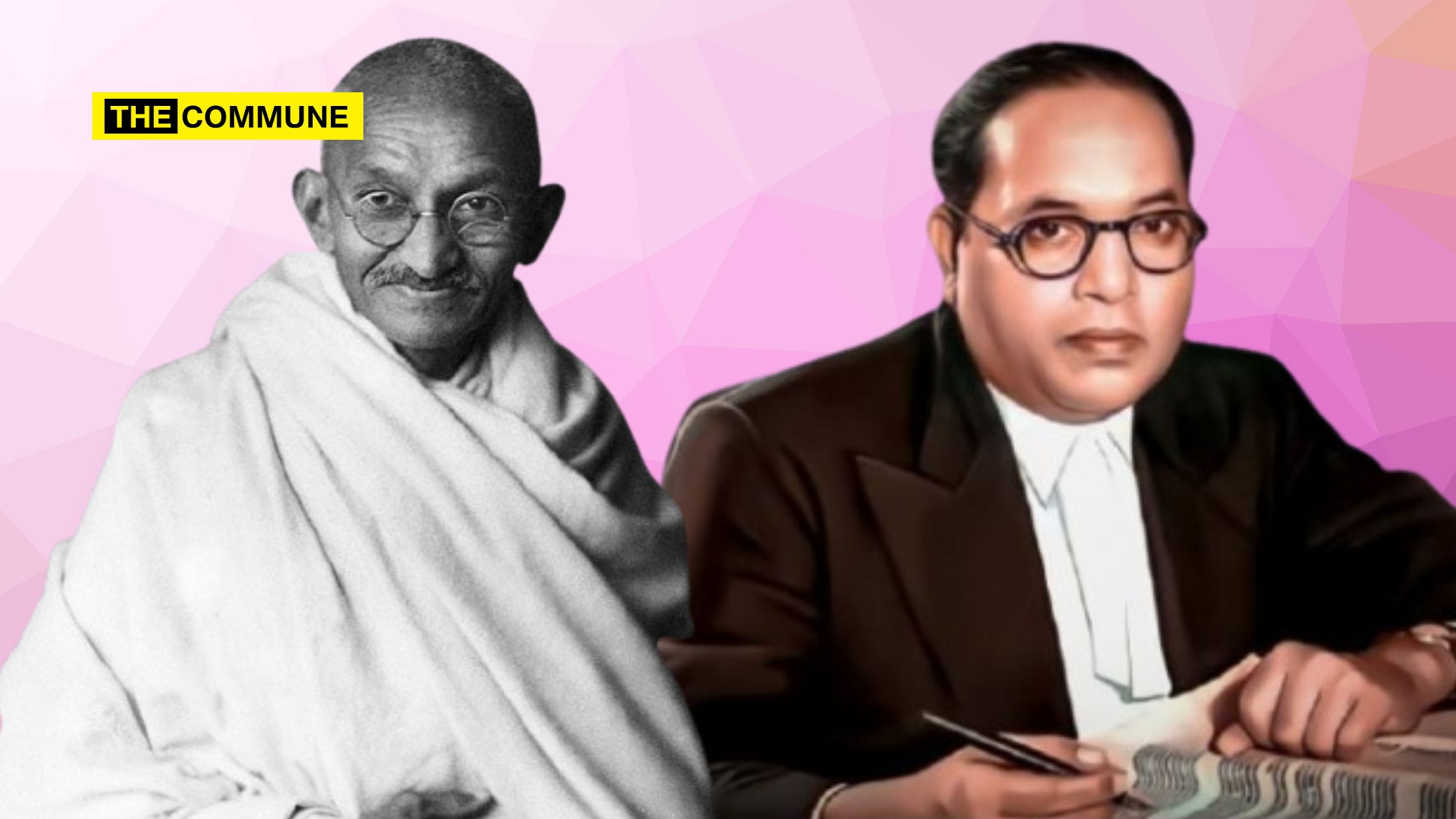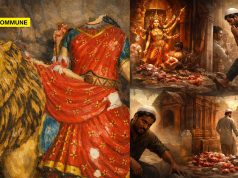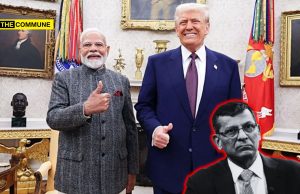
Dr BR Ambedkar, a towering intellectual and social reformer, remains a prominent voice of dissent against the glorification of MK Gandhi as a “Mahatma.” In a candid interview with the BBC in 1955, Ambedkar dismantled the mythos surrounding Gandhi, offering a perspective grounded in his personal experiences and ideological clashes with the man he referred to as an “orthodox Hindu.” Ambedkar’s refusal to recognize Gandhi as “Mahatma” was not merely rhetorical—it stemmed from deep-seated disagreements on critical issues of caste, equality, and political representation.
"I refuse to call him Mahatma, he doesn't deserve that title".
– Dr Ambedkar on Gandhi in 1955 BBC Interview pic.twitter.com/ejXOKaBGkO
— Rishi Bagree (@rishibagree) January 30, 2024
Gandhi – An “Episode,” Not An Epoch-Maker
Ambedkar began by expressing his astonishment at the Western world’s fascination with Gandhi. He characterized Gandhi as “an episode in the history of India” rather than an epoch-maker, arguing that his relevance was artificially sustained through annual Congress-led commemorations. Without these, Ambedkar believed, Gandhi’s memory would have faded from the public consciousness. He said, So far as India is concerned, in my judgment, he was an episode in the history of India, never an epoch-maker. Gandhi has already vanished from the memory of the people of this country. His memory is kept up because the Congress party annually gives holidays, has celebrations for seven days in a week. Naturally, people’s memory is revived. But if this artificial respiration were not given, I think Gandhi would be long forgotten.”
Exposing Gandhi’s “Double-Dealing”
One of Ambedkar’s most scathing critiques was directed at what he perceived as Gandhi’s duplicity. He accused Gandhi of presenting different faces to different audiences, criticizing him for deceitful behavior: “If you read these two papers, you will see how Mr. Gandhi was deceiving the people. In the English newspaper, he posed himself as an opponent of the caste system and untouchability, and as a democrat. But if you read his Gujarati magazine, you will see him as a more orthodox man, supporting the caste system and the varnaashrama dharma.”
Ambedkar pointed out that the Western world, primarily reading Gandhi’s English writings, was oblivious to the contradictions in his Gujarati publications. He urged biographers to analyze Gandhi’s dual narratives, “Someone ought to write Mr. Gandhi’s biography by making a comparative study of the statements he made in Harijan and those in his Gujarati paper. All the biographies that have been written of him are based on his English writings, not upon his Gujarati writings.”
The Poona Pact: A Clash Of Ideologies
Ambedkar’s most direct confrontation with Gandhi came during the Poona Pact negotiations. He recounted: “The British government, in the original award, accepted my suggestion to give separate electorates to the Scheduled Castes. Gandhi didn’t want us to send our true representatives. He went on a fast, saying he would die if the award was implemented.”
Ambedkar critiqued Gandhi’s simplistic view of social harmony – “For five years, we live separately from the Hindus, with no kind of social or spiritual intercourse. What can one day of common participation in an election do to remove these hardened crusts of separatism that have grown for centuries?”
Ambedkar eventually compromised, proposing primary elections among Scheduled Castes before the general election. However, he remained skeptical of Gandhi’s intentions, asserting, “Gandhi’s object was that we should not get free independent representatives. It was just his whim. I refused to sacrifice the interests of my people to save his life.”
Gandhi’s Limited Vision For Untouchables
Ambedkar lambasted Gandhi’s focus on symbolic reforms like temple entry, dismissing them as inconsequential, “Nobody cares about Hindu temples now. The untouchables have become so conscious of the fact that temple-going is of no consequence at all. Whether you went to the temple or did not go to the temple, you would still live in untouchable quarters just the same.”
He highlighted Gandhi’s lack of commitment to addressing systemic inequalities, “Mr. Gandhi was totally opposed to giving us equal opportunities to hold high offices so that we could protect our own people. His focus was only on removing untouchability, not on uplifting the Scheduled Castes to the level of other classes.”
“Never A Mahatma”
Ambedkar’s refusal to call Gandhi “Mahatma” was rooted in his belief that Gandhi lacked the moral and social dynamism to earn such a title. Ambedkar described Gandhi as a shrewd politician rather than a saintly figure, asserting that Gandhi’s actions were often guided by personal whims and political maneuvering. He stated, “As a politician, he was never a Mahatma. I refused to call him Mahatma. I never in my life called him Mahatma. He didn’t deserve that title—not even from the point of his morality.”
Ambedkar’s critique extended beyond politics, pointing to Gandhi’s inconsistent morality and lack of genuine reformist zeal.
Ambedkar’s assessment of Gandhi offers a compelling counter-narrative to the mainstream veneration of the “Father of the Nation.” By exposing Gandhi’s contradictions and limitations, Ambedkar highlighted the complexities of India’s struggle for social justice and independence. His refusal to bestow the title of “Mahatma” on Gandhi underscores his commitment to an uncompromising vision of equality and empowerment for the oppressed. In Ambedkar’s eyes, true greatness lay not in rhetoric or symbolic gestures but in transformative action—an ideal he tirelessly pursued throughout his life.
(With inputs from Velivada)
Subscribe to our channels on Telegram, WhatsApp, and Instagram and get the best stories of the day delivered to you personally.




